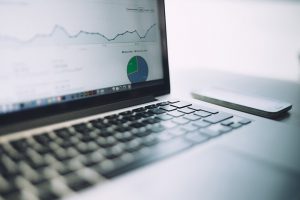Every day, 2.5 quintillion bytes of new data are generated. On top of that, there are companies like Google, Apple, or Microsoft that are mining data. Other platforms are collecting data from third parties for “business development, product utilization, and market intelligence.” What do companies do with all this data?

How big data is collected and used is already changing our lives. Every person and even the smallest businesses produce data through social media, website usage, or credit card payments. Data collection and subsequent analytics are impacting every business, regardless of size or field. To put it simply, big data refers to the large collection of data that cannot be processed by traditional means. Data analytics are finding patterns in huge amounts of data using algorithms. The risk of not adapting to these “new rules of the game” is far-reaching and those companies that do not realize it may fall behind in the future.
Data Sharing
Businesses are able, through cloud-based data platforms, to exchange and share information in real time. This data is then used anywhere from marketing, to production, to sales. This data-sharing helps “strengthen cross-company collaboration and communication protocols too.” Companies all around the world can have the same data which allows for faster response to demand or planning.
Retailers could “increase their operating margins by as much as 60% using big data.” In manufacturing, big data has a significant impact on industry. Robotics and automation also create new jobs, while increasing cost efficiency or service performance. Read more here in my previous article about top manufacturing trends and challenges in 2018 and beyond.
Data Driven Business
Big data can be also used in HR to engage employees. For example, Dell is using them “in trying to determine the best fit for key roles.” Their data scientists compare collected data with psychometric profiles completed by prospective candidates or team members. They can determine if somebody is a good fit for sales roles. While searching for a specific trait in people, they can link employees to positions where they may be more successful.
In the healthcare and pharmaceutical industry, through the use of big data technologies, hospitals were able to improve outcomes for certain conditions, increase revenue and patient services, and cut costs. As an example of big data application, it has helped identify new targets for lung disease treatments. The University of Maryland School of Medicine, along with the University of Buffalo and Yale University, collaborated to better understand and treat patients with Chronic Obstructive Pulmonary Disease. Based on their findings from big data and data mining, they may be able to develop new treatments and vaccines.

